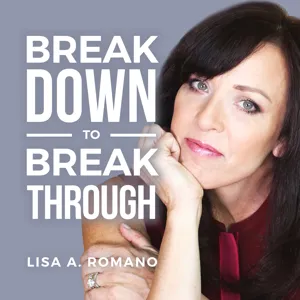Podcast Summary
The Global Concern for Mental Health: Taking care of our mental well-being is essential, as the impact of the pandemic and alarming suicide rates highlight the need for addressing mental health concerns globally.
Mental health is a growing concern globally, and the impact of the pandemic extends beyond physical health. The World Health Organization predicts a mental health pandemic, with a potential rise in suicides. Even without the virus, our mental well-being is crucial. Taking care of our survival alone is not enough. We need to become conscious of our actions, thoughts, and emotions to avoid heading downhill. The experience of bliss is possible by creating distance from our physiological and psychological activities. This is not just one person's experience but has been measured scientifically. The goal is to spread this blissful state to the whole world, as everyone deserves to experience it. Additionally, the alarming statistics of suicide highlight the pressing need to address mental health concerns, especially among business people who often appear unhappy.
The Illusion of Material Success and True Expansion: True expansion and fulfillment come from raising our consciousness and recognizing our true selves beyond the physical, rather than pursuing material success and possessions.
Human beings have an inherent longing to expand and break boundaries. This longing is often mixed up with our survival instinct, leading us to mistakenly believe that material success and possessions will bring us fulfillment. However, this constant pursuit of expansion in a physical sense only leaves us feeling constipated and unsatisfied. The key is to understand that true expansion happens on a non-physical level, in the realm of consciousness. By raising our consciousness and realizing that physical expansion is limited, we can tap into boundless expansion and truly own the universe. Stress and dissatisfaction arise when we confuse our identity with external factors, rather than recognizing our true selves beyond the physical.
Finding Contentment and Peace Within: Detach from external factors and focus on inner state for true happiness and peace, regardless of external circumstances.
Our identification with external things is causing us suffering and confusion. Sadhguru explains that we often attach our identity and sense of self to material possessions, achievements, and even our thoughts and emotions. This attachment leads to a never-ending cycle of suffering, regardless of whether we are successful or not. The key to navigating life sensibly is to see things as they are, without distortions or delusions. Sadhguru emphasizes the importance of clarity of vision and perceiving reality accurately. He urges us to disattach ourselves from external factors and focus on our inner state, finding contentment and peace within ourselves. By doing so, we can live and die with a sense of blessedness, regardless of external circumstances.
Cultivating consciousness and self-awareness to overcome distressing behaviors.: By developing self-awareness and understanding our own minds, we can effectively manage our thoughts, emotions, and actions, leading to a more enjoyable and fulfilling life.
Consciousness and self-awareness are key to overcoming compulsive and distressing behaviors. Sadhguru emphasizes that many psychological ailments stem from a lack of control over our thoughts, emotions, and actions. He suggests that instead of trying to forcefully fix these issues, we need to become more conscious and aware of our own intelligence. By understanding and managing our own minds, we can avoid the mental "diarrhea" that leads to distress and anxiety. Additionally, Sadhguru highlights the importance of self-reflection and identifying the root causes of our mental struggles, similar to how we identify the cause of physical diarrhea. Ultimately, the goal is to choose the highest level of pleasantness and lead a blissful life.
Letting go of the past and future to find sanity in the present moment: Don't let non-existent events consume you. Embrace life, make the most out of limited time and energy, and avoid being emotionally constipated by attachment or fear.
Suffering arises from dwelling on past events or worrying about the future, even though neither truly exists in the present moment. Sadhguru explains that this kind of suffering is a form of insanity because it is based on something that doesn't actually exist. He emphasizes the importance of maintaining sanity and not letting circumstances drive us into insanity. While it is natural to experience pain and sadness in life, it is essential not to let these emotions consume us. Instead, we should embrace the limited time and energy we have and choose to make the most out of life, enjoying the moments and not allowing ourselves to be emotionally constipated by attachment or fear.
Choosing Happiness from Within: Our ability to choose how we want to be and find joy and fulfillment from within, rather than relying on external factors, is the key to true happiness.
Our experience of life is determined by us, not by external stimuli. While other creatures react instinctively to their surroundings, we as human beings have the ability to choose how we want to be, regardless of our circumstances. We are meant to know how to simply be, but often we have strayed far from that aspiration. Purpose and passion are not external quests to be found, but rather commitments and choices we make. The key is to find joy and fulfillment from within, rather than relying on external factors for our happiness. By investing time and focus in understanding ourselves through practices like Inner Engineering, we can learn to be happy by our own nature and not be easily swayed by the ups and downs of life.
Ignoring Our Inner User Manual: The Neglected Importance of Self-understanding: By becoming aware of and consciously altering our breath, we can experience a positive shift in our energy and overall well-being, enhancing our lives from within.
We often neglect to understand and pay attention to the user's manual of our own selves. We spend so much time learning about external things, but rarely delve into understanding how our own minds and bodies function. Our thoughts, breath, and life energy are all intricately connected, and by simply becoming aware of and consciously altering our breath, we can experience a shift in our energy and overall well-being. Our sense organs are designed for survival, but they do not contribute to enhancing our lives. To truly enhance our lives, we must turn inward and devote time and attention to understanding ourselves and the mechanisms at play within us.
The Importance of Turning Inward: Understanding and Perceiving Our Inner Selves: Prioritizing personal growth and self-reflection leads to advancements in various fields and allows individuals to consciously respond to life's challenges.
Our sense organs are primarily focused on perceiving the external world, not the inner workings of ourselves. To truly understand and perceive what is happening within us, we must turn inward. This inward journey requires effort and guidance, just like learning a language or any other skill. In ancient India, 70% of the population invested in their inward well-being, leading to great advancements in various fields. Society needs to prioritize the enhancement of individuals, as being peaceful and joyful is more important than trying to be better than others. Trauma and past experiences should not be used as excuses for negative behaviors, but rather as opportunities to become wiser and consciously respond to life.
Boosting Happiness through a Simple 21-Minute Practice: Regularly practicing a 21-minute exercise recommended by Sadhguru can elevate endocannabinoid levels, leading to a constant state of joy and bliss surpassing external sources of happiness. Prioritizing our natural ability to produce endocannabinoids brings lasting fulfillment.
The simple 21-minute practice mentioned by Sadhguru can significantly increase the levels of endocannabinoids in our system. These endocannabinoids play a crucial role in happiness, with levels being 70% higher than what is considered normal for a happy person. This means that practicing the 21-minute exercise regularly can lead to a constant state of joy and bliss, surpassing even the high experienced during sexual orgasm or extreme exercise. This highlights the importance of nurturing our natural ability to produce endocannabinoids rather than seeking external substitutes. Ultimately, our existence and the fundamental aspects of ourselves are more important than just our intellectual processes, and by understanding this, we can tap into a deeper sense of happiness and fulfillment.
The Power and Responsibility of Our Intellect and Artificial Intelligence: We must be cautious with our intellect, using it wisely to create and make good decisions while also ensuring that artificial intelligence is used responsibly for positive progress.
We must be mindful of how we wield our intellect, just like we would with a knife. Our intellect is a sharp instrument that can either benefit or harm us and those around us. It can be a tool for creating, healing, and making wise decisions, or it can be used recklessly and cause destruction. We are responsible for how we use our intellect and must learn to hold it with consciousness and awareness. Additionally, the advent of artificial intelligence presents both opportunities and concerns. While AI can eliminate human error and bring about positive advancements, we must ensure that it is in the right hands and used responsibly.
Technology's potential to free us from mundane tasks and pursue a meaningful life.: We should question the need for jobs and prioritize meeting everyone's basic needs, allowing us to find true purpose beyond work and survival. A deeper understanding of life's potential and a redesign of our societal structure may be necessary.
We often overlook the potential of technology and automation to free us from mundane tasks and allow us to pursue more meaningful lives. Sadhguru's experience with the flatbed calculator highlights the frustration he felt with spending time on subjects that a machine could effortlessly handle. He questions the need for jobs and stresses the importance of ensuring everyone's basic needs are met. The conversation touches on the idea that many people live without true purpose, simply going through the motions of work and survival. It challenges the current societal structure and suggests the need for a deeper understanding of life's potential and a redesign of the way we live. However, achieving this blank canvas seems unlikely.
Cultivating Joy Within: Finding Contentment and Meaning in Life: Prioritizing our well-being and inner bliss allows us to create pleasant experiences, contribute positively to the world, and find contentment in being joyful and present in each moment.
Our internal state of joy and pleasantness is essential regardless of our external circumstances. Sadhguru emphasizes that while external situations may not always go our way, we have the power to cultivate joy within ourselves. When we focus on our own interiority and make it pleasant, we can expect pleasant experiences in return. By prioritizing our own well-being and inner bliss, we can contribute positively to the world. Additionally, Sadhguru highlights the illusion of meaning and purpose. Life itself is a phenomena beyond meanings, and it is our minds that seek purpose. Instead of striving for external achievements or creating fake ambitions, we can find contentment in simply being joyful and present in each moment.
The Search for Meaning in Life: Burden, Distress, and Existential Reality: Instead of seeking external meaning to justify life's burdens, we should focus on diving deeper into ourselves and embracing the profoundness of life's journey.
The search for meaning in life can often be a result of feeling burdened or distressed by the experiences and processes of life. When life becomes burdensome, we seek meaning to justify the weight we carry. However, the search for meaning is not a solution to the existential reality of not knowing where we came from or where we're going. Whether we look for meaning outside or inside ourselves, it doesn't change this reality. Instead of seeking meaning, we should focus on diving deeper into ourselves and finding the profoundness of life. Life is not a problem to be solved with meaning, but a journey to be experienced with bliss.
The Importance of Soil and its Impact on the Planet: Soil is not just a resource; it is a living system that sustains life on Earth. Neglecting soil health leads to biodiversity loss, impacting our nourishment and mental well-being. We must prioritize soil preservation for our survival.
Soil is not just a resource, but our source of life. Sadhguru emphasizes that soil is the largest living system on the planet, with billions of organisms within it. However, despite its importance, over 80% of nations treat soil as a resource that can be manipulated with chemicals. This mindset has led to a loss of biodiversity, with thousands of species going extinct each year. The consequences of this loss are dire, as it directly impacts our nourishment and mental health. If we continue on this path, it will become increasingly difficult for humans to find basic nourishment on the planet. Thus, it is crucial that we shift our perspective and prioritize the health and preservation of our soil.






